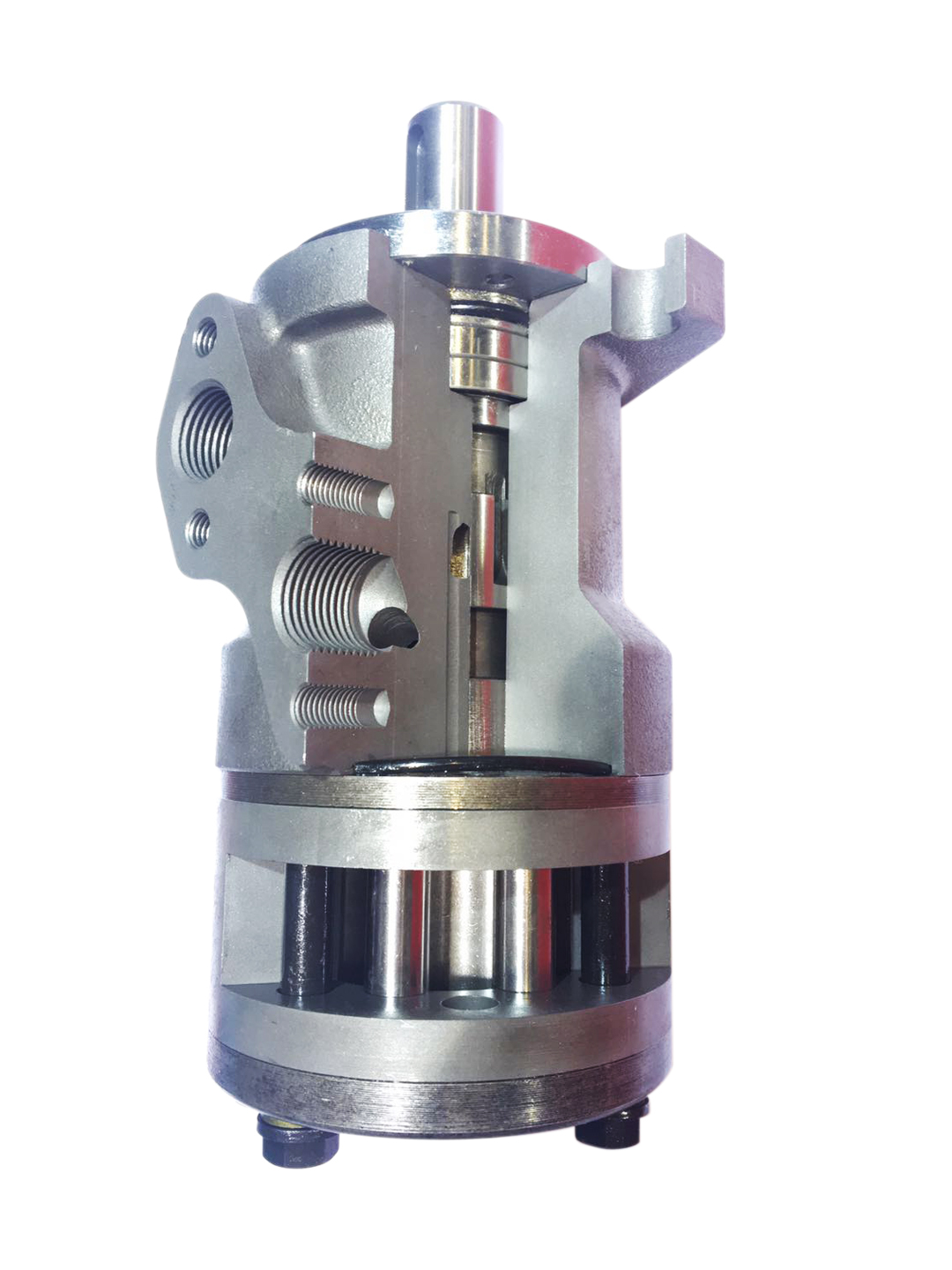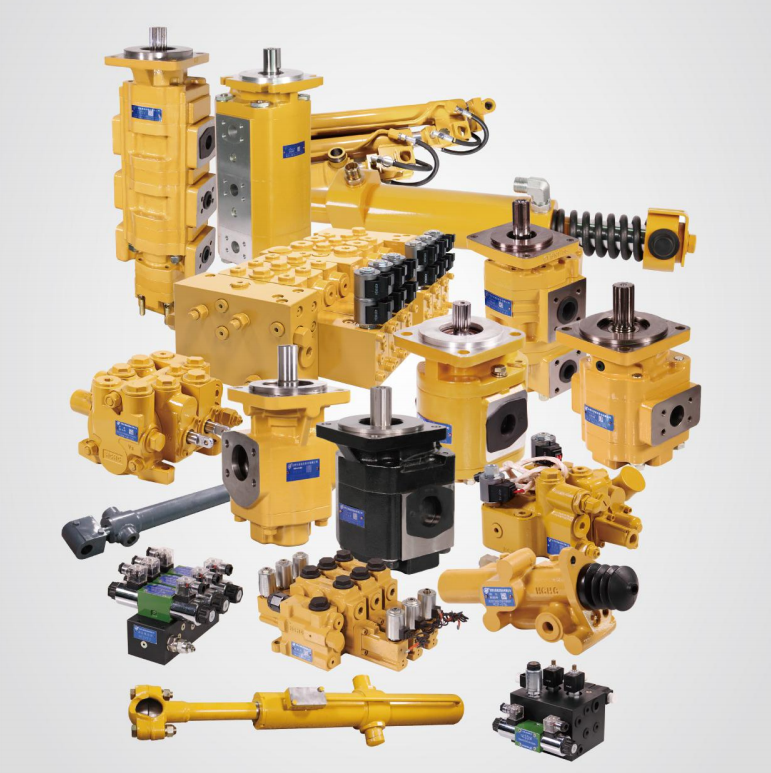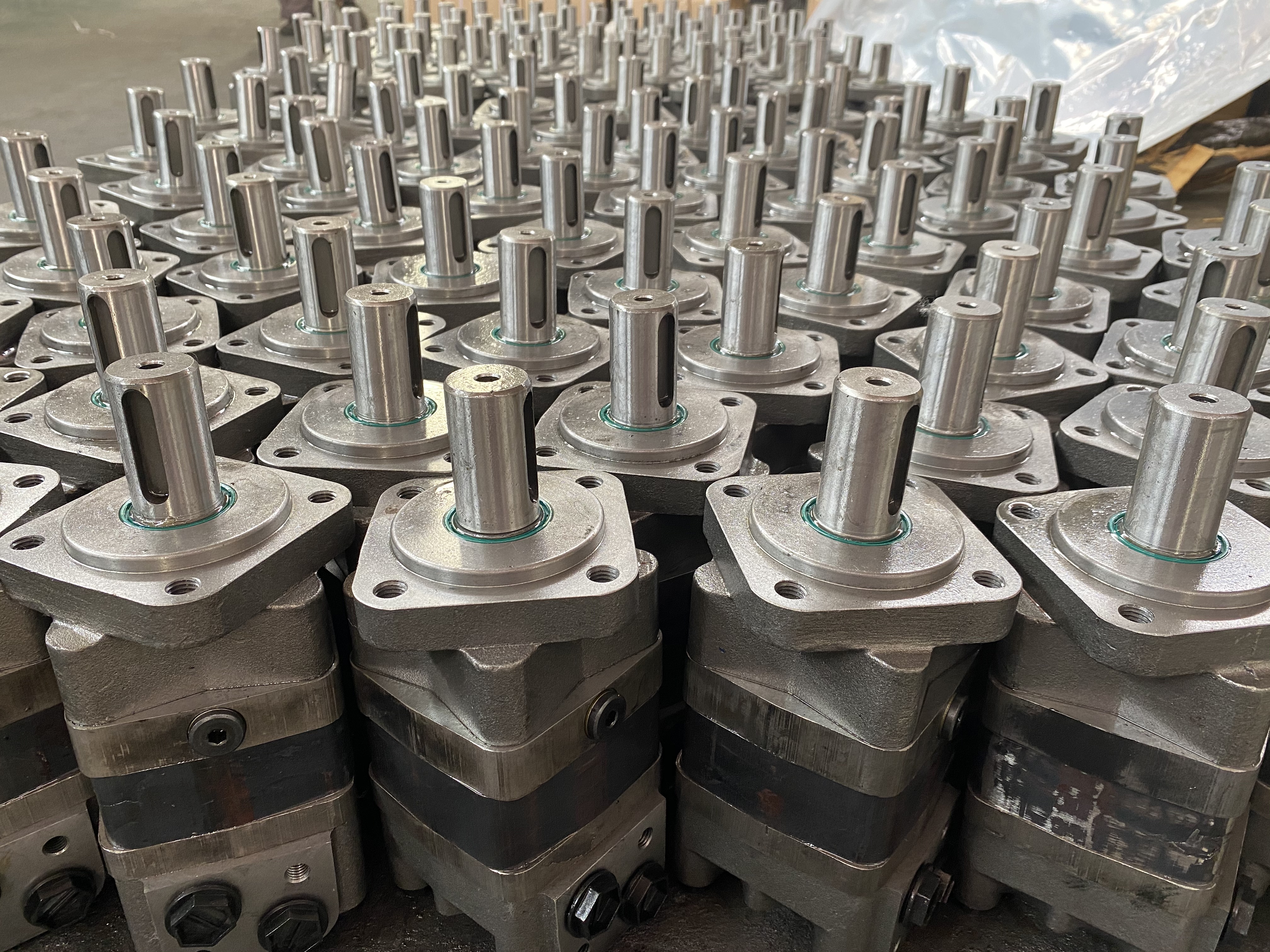Hydraulic pumps are used in many industries, including construction, excavation, automotive manufacturing, and defense contracting. The principle of hydraulic pumps is that they transfer mechanical energy to a liquid, which creates pressure.
Most hydraulic pumps operate based on positive displacement principles. In a positive-displacement pump, the volume of fluid displaced per cycle is almost constant regardless of the system pressure..png)
.png)
- How a Hydraulic Pump Functions
Hydraulic pumps operate by energizing fluids to flow from a lower potential to a higher one. This process is achieved by using several mechanical moving components and receiving energy from a source of electricity or fuel engine as the prime mover.
In order to be effective, hydraulic pumps must maintain pressure throughout their operating range. This is achieved through Pascal's Law, which states that the increase in pressure at a single point of an enclosed liquid in equilibrium is transferred equally to all other points of said fluid.
A pump can improve its operation efficiency by adding features like pressure compensation and load sensing. These enhancements reduce power losses and increase system efficiency by regulating output flow relative to load pressure and bypassing excess fluid through a secondary route.
- What to Consider When Choosing Hydraulic Pumps
Hydraulic pumps are a common fixture in many industrial and construction sites. They power hydraulics systems for equipment like elevators, cranes, automotive lifts, aircraft flaps and more.
The hydraulic fluid used within these machines can have a huge impact on how they work and the lifespan of the machinery. This is why choosing the correct oil for your application is essential.
A good hydraulic oil should have a high Viscosity Index (VI). This value shows how well the fluid maintains its viscosity with temperature changes.
It should also have an anti-wear additive, rust and oxidation inhibitors, and an anti-foam agent to control fluid aeration and protect against damage. A hydraulic oil with these features will keep your pump components in good condition. They will also help to keep your hydraulics system free from sludge, varnish and other contaminants that can lead to fire and other serious issues. This will minimize the risk of your hydraulics system failing, taking your business offline.
- What to Consider When Choosing Hydraulic Pumps
There are a number of factors that you should consider when choosing hydraulic pumps for your application. The most important ones include pressure, flow rate, horsepower, efficiency, and operating temperature.
A pump’s efficiency is determined by its ability to produce high fluid flow rates, as well as the amount of pressure it can create for a given brake horsepower. A higher-efficiency pump will be more expensive, but it will also require less maintenance and energy to operate.
The efficiency of a hydraulic pump is influenced by the type of pump used and its displacement. Piston, vane, and gear pumps are available with fixed and variable displacements.
Piston pumps use a slotted rotor with a number of vanes attached to it. As the rotor rotates, centrifugal force causes the vanes to enlarge and shrink as they enter and exit the pump’s housing cavity. These pumps are suitable for a wide range of applications, including presses, plastic processing machines, and metal forming..png)
- Hydraulic Pumps Maintenance
Hydraulic systems are critical to the operation of many machines. When they fail, it can be extremely costly and cause extensive downtime.
Taking preventative maintenance steps can help to extend the life of your hydraulic equipment and lower your costs. By monitoring the condition of your hydraulic pumps and doing periodic inspections, you can discover issues before they become costly and dangerous.
Pumps can be hard to inspect when covered in mud or dirt, so keeping your machine clean can allow you to easily spot potential issues before they turn into full-scale problems. Also, check the hoses connected to your pump for damage or other issues that may interfere with fluid flow and cause a leak.
Leaks in hydraulic liquid can be dangerous as they can cause serious injury or even fire. If you notice a leak, take immediate action to stop the flow of fluid or prevent further damage.

 中文
中文 English
English Español
Español Français
Français

